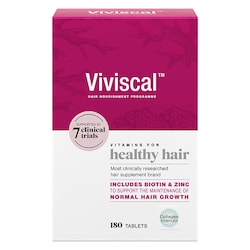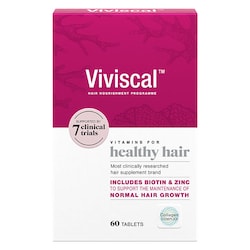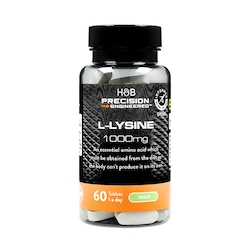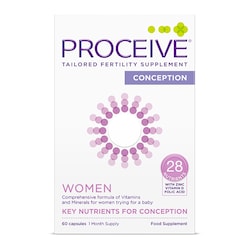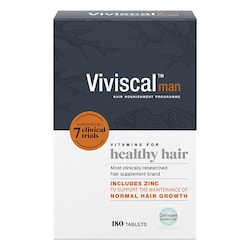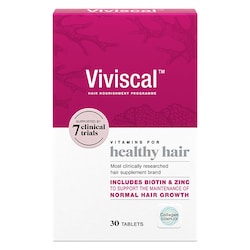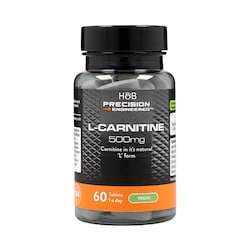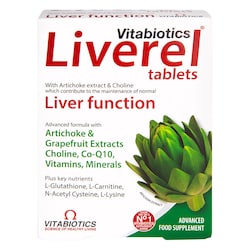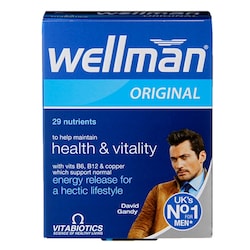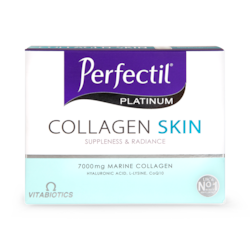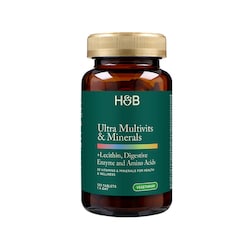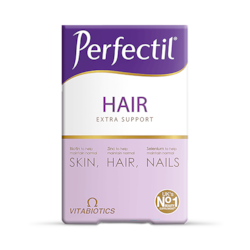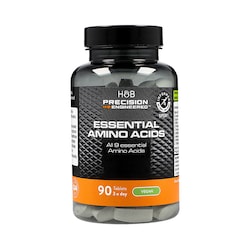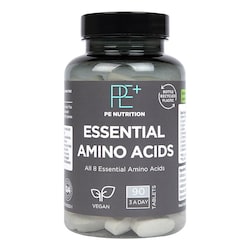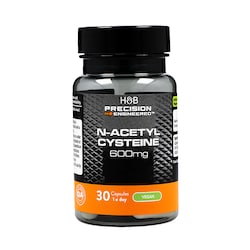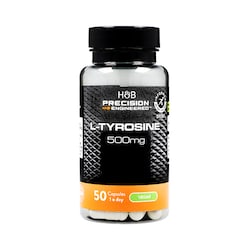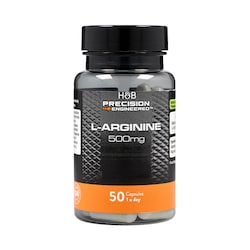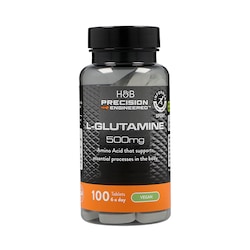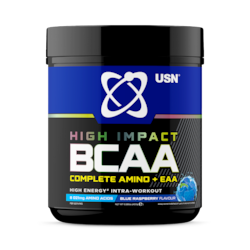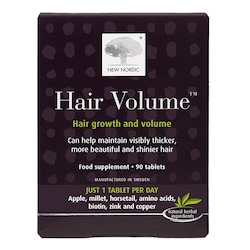15% off £25 OR 20% off £35
Code:CHOOSE
Your guide to essential amino acids

Amino acids: tiny nutrients with big benefits. From muscle power to energy boosts, find out how these building blocks fuel your body – and the best foods to get them from
Summary
1What are amino acids?
Your body needs 20 different amino acids to function properly. Nine of these amino acids can’t be made by your body…
2Types of essential amino acids
You now know the basics about amino acids and their role in your body, but exactly which amino acids are classed as essential…
3Possible benefits of essential amino acids
Essential amino acids offer a range of possible benefits for your health and wellbeing – though it’s worth noting that more research is needed…
You may have heard of amino acids before, but how much do you really know about them?
Amino acids are the building blocks of proteins that your body needs to function correctly.1
Keep reading to find out more about what amino acids do, why your body needs them and where you can find them.
What are amino acids?
Your body needs 20 different amino acids to function properly.2 Nine of these amino acids can’t be made by your body and must be consumed through your diet. These are known as ‘essential’ amino acids.2 Your body can produce the remaining 11, so getting them through your diet is less important.
The main function of amino acids is to act as building blocks for proteins.1 Amino acids join together to form the proteins that your body needs to perform a range of functions, including building and repairing bones and muscles, making hormones and enzymes and supporting your immune system.2
While your body doesn’t use protein as its preferred energy source, if you aren’t eating enough carbohydrates or if you’re in a large calorie deficit with inadequate fat stores, protein will get broken down and used to create energy.3
Types of essential amino acids
You now know the basics about amino acids and their role in your body, but exactly which amino acids are classed as essential? The list includes: 2
- methionine
- phenylalanine
- threonine
- tryptophan
- histidine
- lysine
- valine
- leucine
- isoleucine
You may have also heard of branched chain amino acids (BCAAs). These essential nutrients include three of the above amino acids – valine, leucine and isoleucine – which are particularly well-known for their proposed benefits for exercise performance and recovery.4,5 This is because they can be used directly as fuel by the muscles, particularly when glycogen is depleted.
Possible benefits of essential amino acids
Essential amino acids offer a range of possible benefits for your health and wellbeing – though it’s worth noting that more research is needed to really dig into these potential perks.
Below are some key areas where essential amino acids may offer a helping hand.
Some research suggests that essential amino acids can positively affect energy balance. This could be particularly beneficial for athletes and people who do a lot of exercise, as the additional energy may help them push their bodies harder and/or for longer.4,5
Essential amino acids are thought to play a key role in muscle health, providing your body with the protein needed to build muscle mass and help your muscles recover following a workout. This could mean less muscle soreness and a faster return to exercise.4,5
Sleep plays a crucial role in your overall health and wellbeing. When you’re asleep, your body and brain repair themselves and undergo various maintenance processes that prepare you to function the next day.7 This process is set by your circadian rhythm – AKA your internal body clock. Dive into our article on the circadian rhythm for everything you need to know.
One study found that a sufficient amount of amino acids may help boost sleep quality – though much more research is needed to confirm this.8
Foods high in essential amino acids
Most people get the nutrition they need to support their health through their food. As you now know, your body can’t make essential amino acids by itself. This means that for optimal health, you need to consume foods that have essential amino acids in them.
Foods that contain all nine essential amino acids are called ‘complete proteins’. These include:1
- beef
- poultry
- fish
- eggs
- dairy
- soy
- quinoa
- buckwheat
Nevertheless, if you don’t like foods that are high in amino acids, you may want to consider amino acid supplements to ensure you’re getting your recommended daily amounts.9
Exactly how much of each amino acid you need will vary depending on your goals, and of course, your own health. We recommend you always speak to your doctor before starting to take any supplement.
Supplements are available in many different forms, including BCAA powders, and flavours to make them interesting and tasty.
Side effects of essential amino acids
Most people don’t experience any side effects when taking essential amino acid supplements. However, supplements can cause stomach upset in those with sensitivities.10 Other reported side effects include water retention and muscle cramps.10
Currently, there’s no research on taking essential amino acid or BCAA supplements when pregnant and/or breastfeeding. So, if you’re pregnant, trying to conceive or currently breastfeeding, you should seek professional advice before taking any essential amino acid supplements.
The final say
Amino acids are thought to play important roles in your overall health and wellbeing, especially if you’re very active.
Getting essential amino acids through a healthy and balanced diet is ideal, but supplements provide an effective alternative way of getting enough amino acids to optimise your health.
This article provides informational advice and is not a substitute for medical care. Curated by experts for accuracy, we take great care to ensure the information is up-to-date and relevant. However, you should always consult your GP or healthcare professional before using supplements or alternative products, particularly if you have medical conditions or are under supervision.
- Allowances, National Research Council (US) Subcommittee on the Tenth Edition of the Recommended Dietary. Protein and Amino Acids. Recommended Dietary Allowances: 10th Edition. Washington (DC): National Academies Press (US); 1989. Available from: https://www.ncbi.nlm.nih.gov/books/NBK234922/
- British Nutrition Foundation. Protein [Internet]. [cited 2024 Jul 2]. Available from: https://www.nutrition.org.uk/nutritional-information/protein/
- Evans M, et al. Metabolism of ketone bodies during exercise and training: Physiological basis for exogenous supplementation. J Physiol. 2017;595(9):2857–71. https://doi.org/10.1113/JP273185
- Martinho DV, et al. Oral Branched-Chain Amino Acids Supplementation in Athletes: A Systematic Review. Nutrients. 2022;14(19):4002. https://pubmed.ncbi.nlm.nih.gov/36235655
- Salem A, et al. Branched-Chain Amino Acids Supplementation and Post-Exercise Recovery: An Overview of Systematic Reviews. J Am Nutr Assoc. 2024;43(4):384-396. https://pubmed.ncbi.nlm.nih.gov/38241335/
- NHS. Better Health: Sleep problems [Internet]. [cited 2024 Jul 2]. Available from: https://www.nhs.uk/every-mind-matters/mental-health-issues/sleep/
- Sejbuk M, et al. Sleep quality: A narrative review on nutrition, stimulants, and physical activity as important factors. Nutrients. 2022;14(9):1912. https://doi.org/10.3390/nu14091912
- Elango R. Tolerable upper intake level for individual amino acids in humans: A narrative review of recent clinical studies. Adv Nutr. 2023;14(4):885–94. https://doi.org/10.1016/j.advnut.2023.04.004
- Holeček M. Side effects of amino acid supplements. Physiol Res. 2022;71(1):29–45. https://doi.org/10.33549/physiolres.934790



